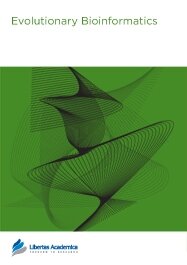

Publication Date: 04 Jul 2012
Type: Original Research
Journal: Evolutionary Bioinformatics
Citation: Evolutionary Bioinformatics 2012:8 373-387
doi: 10.4137/EBO.S9796

Aspergillus species are industrially and agriculturally important as fermentors and as producers of various secondary metabolites. Among them, fungal polyketides such as lovastatin and melanin are considered a gold mine for bioactive compounds. We used a phylogenomic approach to investigate the distribution of iterative polyketide synthases (PKS) in eight sequenced Aspergilli and classified over 250 fungal genes. Their genealogy by the conserved ketosynthase (KS) domain revealed three large groups of nonreducing PKS, one group inside bacterial PKS, and more than 9 small groups of reducing PKS. Polyphyly of nonribosomal peptide synthase (NRPS)-PKS genes raised questions regarding the recruitment of the elegant conjugation machinery. High rates of gene duplication and divergence were frequent. All data are accessible through our web database at http://metabolomics.jp/wiki/Category:PK.
PDF (1.15 MB PDF FORMAT)
RIS citation (ENDNOTE, REFERENCE MANAGER, PROCITE, REFWORKS)
Supplementary Files 1 (2.77 MB ZIP FORMAT)
BibTex citation (BIBDESK, LATEX)
XML
PMC HTML
My co-authors and I had a very positive experience with the review and publication process in Evolutionary Bioinformatics. The reviewers were rapid and on point, and publication was also rapid after we made the necessary revisions.

All authors are surveyed after their articles are published. Authors are asked to rate their experience in a variety of areas, and their responses help us to monitor our performance. Presented here are their responses in some key areas. No 'poor' or 'very poor' responses were received; these are represented in the 'other' category.See Our Results
Copyright © 2013 Libertas Academica Ltd (except open access articles and accompanying metadata and supplementary files.)
Facebook Google+ Twitter
Pinterest Tumblr YouTube